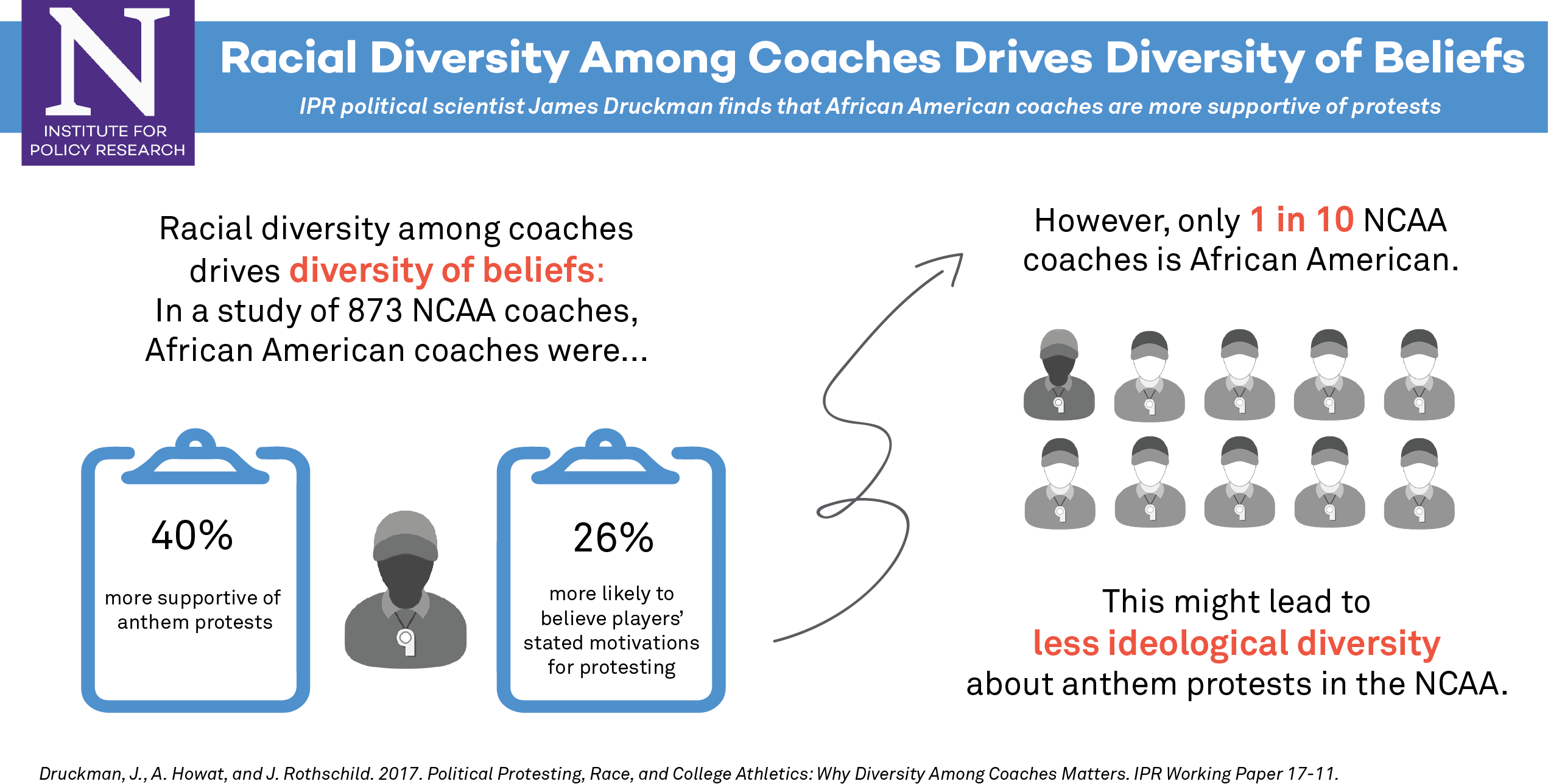Infographic: Racial Diversity Among Coaches Drives Diversity of Beliefs
IPR political scientist finds that African American coaches are more supportive of protests
Get all our news
African American coaches in particular are dramatically more likely to be supportive of allowing players to protest”
James Druckman
IPR political scientist
Since NFL player Colin Kaepernick first kneeled during the national anthem in the 2016 season, political protests have become a major topic of discussion in sports. Many athletes have stated that the stances of the institutions they play under, whether it be the NFL, NBA, or NCAA, have been unsupportive of the movement.

Click on the image above to see a larger version of the infographic.
A new study by Northwestern University researchers examines beliefs about athlete protests within one institution, the NCAA, finding that coaches’ race can affect their views.
“African American coaches in particular are dramatically more likely to be supportive of allowing players to protest,” explained IPR political scientist James Druckman. “They were also significantly more likely to think when players do protest that they’re doing it because they care about the issue rather than trying to get attention for themselves.”
Among 800 college coaches from a variety of sports and colleges, African American coaches were 40 percent more supportive of anthem protests and 26 percent more likely to believe that players actually care about the issues they protest.
Researchers also looked at how opinions of protests differed over other variables, such as gender, age, and income, but the only other variable found to have a significant effect on protest support was political ideology. More conservative individuals are significantly more likely to oppose protests and support team rules against protests.
While the goal of this paper, Druckman states, is not to “settle what is or is not appropriate,” the case remains that the study finds race to be a leading factor in determining a coach’s opinion on athlete protests. This is important, Druckman explains, because coaches hold a lot of sway over student-athletes, as they control who plays and expect players to abide by detailed training and behavioral rules.
Given that only about 1 in 10 NCAA coaches is African American, Druckman says that the results of the survey show how this lack of diversity shapes the overall attitude of the organization when it comes to athlete protests.
“Regardless of what one believes when it comes to student-athletes’ protesting, our findings make clear that diversity among coaches generates a diversity in beliefs,” he wrote in the IPR working paper.
James Druckman is Payson S. Wild Professor of Political Science and an IPR fellow.
Read the IPR working paper.
Published: January 30, 2018.